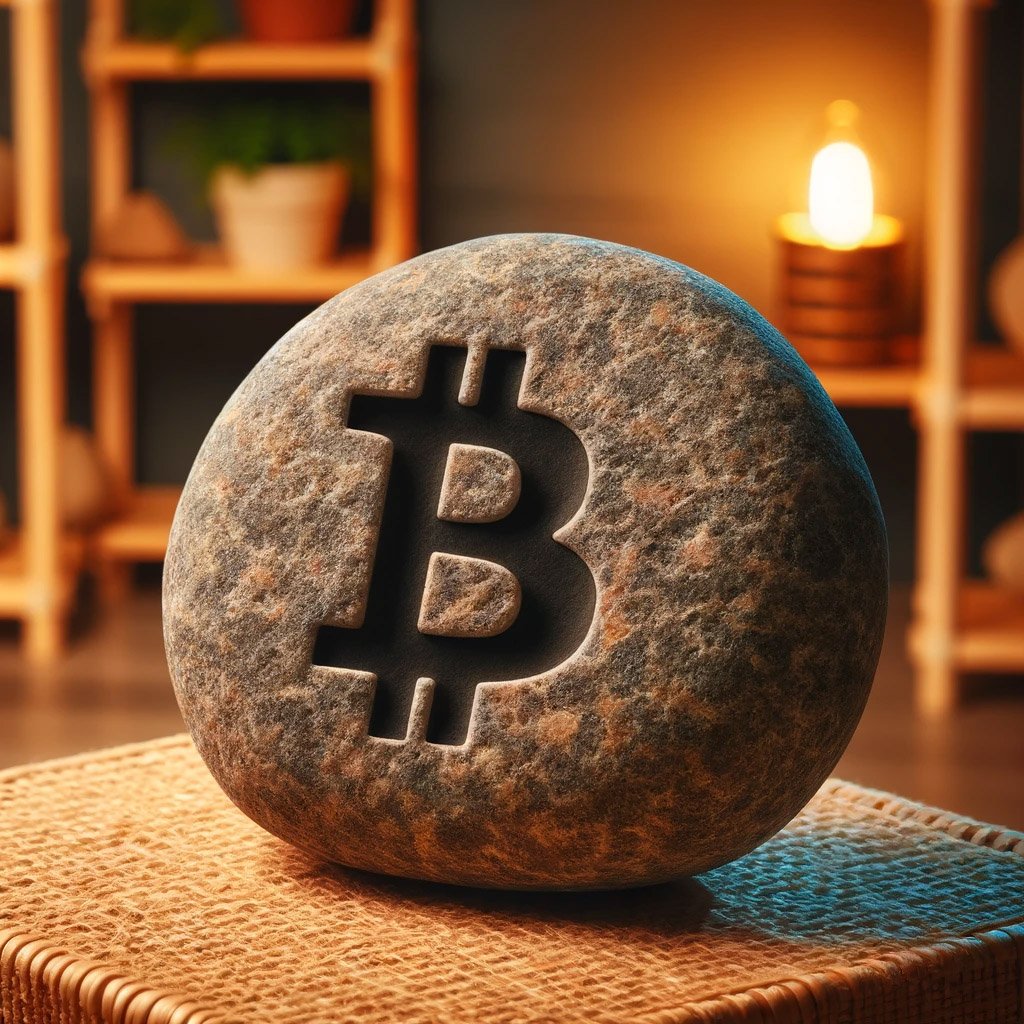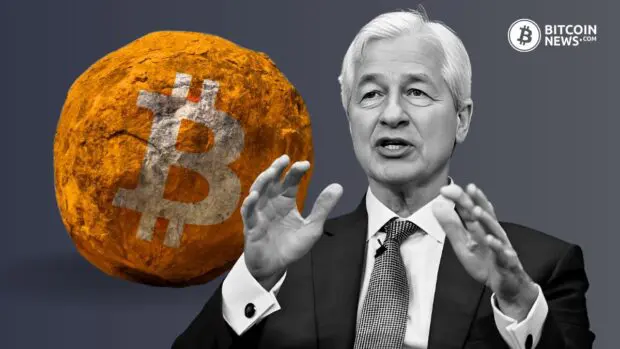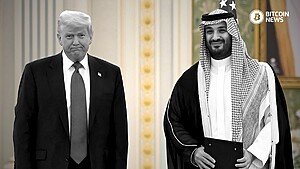Move over beanie babies, Bitcoin ,the new “pet rock” is outperforming all other assets. No matter how vehemently Jamie Dimon disparages Bitcoin, it won’t erase the fact that it has been one of the best, if not the premier, investments since its inception in 2009.
Imagine if we could precisely analyze the ratio of someone’s positive versus negative comments about Bitcoin? There is a fat chance their yap aligns with how much dough they’ve sunk into it. It makes intuitive sense. The more one understands Bitcoin, the more they are compelled to allocate funds into it, fueling an insatiable desire to learn even more.
As your enthusiasm grows, others may perceive you as an eccentric. Yet, many embrace the adversity, cherishing the red days as prime opportunities to accumulate more satoshis. This virtuous cycle is one of Bitcoin’s most alluring facets.
Inevitably, Jamie Dimon’s stance on Bitcoin will shift, but not until his vested interest in it exceeds his allegiance to JPMorgan Chase and the fiat system that has enslaved multitudes in a perpetual rat race of debt servitude. On that day, the pet rock will have truly come into its own, smashing preconceived notions and catalyzing a seismic shift in the global financial order. This once-dismissed novelty will have redefined the landscape, ushering in a new era of economic empowerment and individual sovereignty.

“Pet Rock”: Global Adoption Of A Monetary System
Contemplating the fundamental nature of money systems is an exercise in humility. Profound questions inevitably arise: How should new money be issued and by what authority? Who dictates the scheduling and supply? Why is the monopolization of money issuance and unchecked fiat printing considered detrimental to economic freedom? What core principles distinguish Bitcoin from traditional monetary forms?
While the answers may seem intricate on the surface, they are rooted in simplicity itself: establish a fair, immutable, and transparent monetary system, then steadfastly adhere to its predetermined rules and issuance schedule. No rational person would tolerate playing a sport where the referee could arbitrarily change the rules mid-game to favor one side. Yet that is precisely the fickle system humanity has been subjected to by central banks and governments manipulating fiat currencies.
Perfection is an unrealistic pursuit that often impedes progress. However, if a monetary system has been meticulously architected upon bedrock principles of fairness, transparency, and truly achieves decentralized, disinflationary issuance then it makes sense why people would adopt such a bottom up system.
If Satoshi’s coins remain unmoved it will be a clear signal that the creator’s intent was not to enrich themselves but rather offer humanity an incorruptible monetary system. Such a system deserves recognition. It will be fascinating to witness Bitcoin’s potential for global adoption, much like how the internet revolutionized our world over the past five decades. The journey ahead promises to be remarkable, a paradigm shift of monumental proportions.
Satoshi’s Legacy
Ultimately, even if Satoshi’s coins were to move, it wouldn’t diminish the profound impact of their creation. Bitcoin was released as an open-source protocol, a gift to anyone willing to participate in this revolutionary system. Every user of the system is a beneficiary of Satoshi’s visionary work, and our collective participation strengthens the network’s resilience. Satoshi’s anonymous genius has bestowed upon humanity a decentralized, borderless, and censorship-resistant form of money that could redefine the very fabric of finance and economics.
“Thousands of years ago, the first man discovered how to make fire. He was probably burned at the stake he had taught his brothers to light, but he left them a gift they had not conceived of, and he lifted darkness off the earth.”
— Howard Roark

Satoshi appears to have taken a different path, one that eschewed martyrdom. It’s likely he thought “Nah fam, that’s too much drama, here’s better money, and with that, I’m out. No need to wait around to get persecuted by the war-hungry kleptocrats running the current fiat system.”
The profound humility required to create a monetary system orders of magnitude better than the status quo, and then willfully walk away from it, seems antithetical to human nature. Yet, if one possessed the genius to solve the Byzantine Generals’ double-spend problem, a puzzle that had vexed computer scientists for decades, they likely also had the foresight to recognize the futility of lingering around. To wait would be to invite a proverbial hornets’ nest of opposition from vested interests threatened by such a disruptive, decentralizing innovation.










